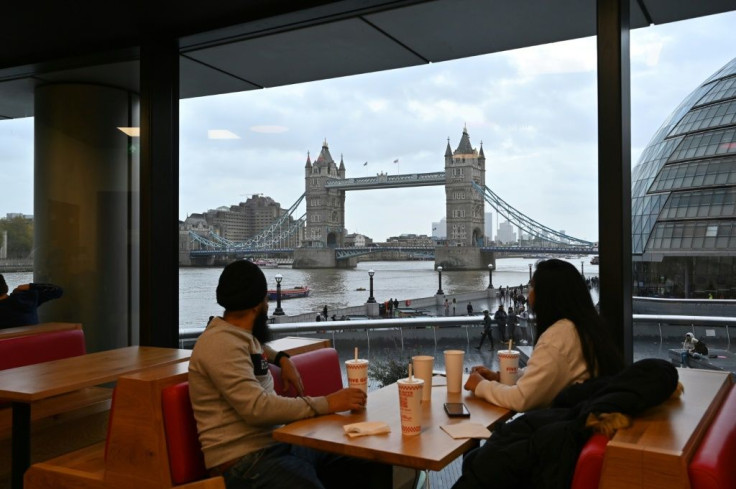UK Businesses Face 'Devastating' New Lockdown: CBI
A second coronavirus lockdown in England will deliver a "devastating" blow to British businesses, the country's biggest employers organisation said on Monday.
The Confederation of British Industry (CBI) warning came before the start of four weeks of stay-at-home restrictions on Thursday to try to halt spiralling infection rates.
CBI director-general Carolyn Fairbairn told the lobby group's annual conference the measures will be "truly devastating for businesses".
"The good news is we are better prepared" than before the pandemic struck, she said in an online address to delegates.
But she warned: "We need to keep as much of the economy open as possible."
Prime Minister Boris Johnson had previously resisted increasing calls for a short "circuit-breaker" lockdown, as cases mounted following similar rises elsewhere in Europe.
Britain has been among the worst-affected countries by the outbreak, with some 47,000 deaths from more than one million positive cases.
He eventually announced the second lockdown on Saturday, after warnings that hospitals could be overwhelmed within weeks if nothing was done.
Johnson also announced a one-month extension of a furlough jobs support scheme, under which the government has paid up to 80 percent of monthly wages for about ten million workers during the emergency health crisis.

The government had been due to water down the furlough scheme on November 1.
Fairbairn added that the business community wanted "clarity" over what would happen at the end of the extension.
She also warned it would be "unconscionable" to end the post-Brexit transition period on December 31 without a trade deal, given the chronic uncertainty caused by the pandemic.
"I urge everyone to get a deal ... We need it desperately," Fairbairn added on Monday.
Britain left the European Union in January but a post-Brexit trade deal remains elusive, European sources told AFP over the weekend.
Talks continue this week but time is fast running out to strike an agreement for it to be in place for January 1.
Johnson had been due to address this week's CBI gathering but cancelled his appearance.
Britain's first Covid-19 lockdown, which was implemented on March 23 and lasted until June, sparked a historic recession.
Bank of England governor Andrew Bailey stated earlier this month that UK economic output in the third quarter was between nine and 10 percent below its level at the end of last year.
© Copyright AFP {{Year}}. All rights reserved.




















